If you’ve ever been curious about remote control (RC) vehicles, you’ve likely encountered two major categories: RC trucks and RC cars. Both offer thrilling experiences, but they cater to different types of enthusiasts. Whether you're a beginner or a seasoned RC hobbyist, understanding the distinctions between RC trucks and RC cars can help you choose the right model for your needs. Let’s dive into the details of each and compare their features, performance, and ideal use cases.
What Are RC Trucks?
RC trucks are modeled after real-world trucks, particularly off-road vehicles, monster trucks, and pickup trucks. They are designed to handle rugged terrain, tough conditions, and obstacles that would challenge most RC cars. Commonly, these trucks feature larger wheels, a more durable chassis, and enhanced suspension systems to absorb shocks and handle bumpy rides with ease.
Types of RC Trucks
-
Monster Trucks: These are the heavyweights of the RC truck world, often built for extreme off-road action, crushing obstacles, and doing jaw-dropping stunts. They typically have massive tires, powerful motors, and high ground clearance, making them ideal for outdoor adventures.
-
Rock Crawlers: Designed to climb steep, rocky inclines and navigate rough terrain, rock crawlers are slower but more precise. These trucks excel in control and traction, making them perfect for crawling over rocks and uneven surfaces.
-
Short Course Trucks (SCTs): These are designed for racing on dirt tracks or gravel surfaces. With off-road capabilities and a focus on speed and agility, SCTs offer a balance between a monster truck and a racing car.
-
Truggies: A hybrid between trucks and buggies, truggies are built for both off-road speed and durability. They combine the power of a monster truck with the handling of an off-road car, making them versatile for different terrains.
Key Features of RC Trucks:
- Larger tires and higher ground clearance for rough terrain.
- Tougher suspension to absorb impacts and handle obstacles.
- More durable chassis to withstand the wear and tear of outdoor driving.
- Variety of types, from monster trucks to rock crawlers to truggies.
What Are RC Cars?
RC cars, on the other hand, are built for speed and smooth handling, primarily on paved or smooth surfaces. These vehicles are modeled after real-world cars, including everything from Formula 1 cars to touring cars, and they are often designed for racing.
While RC cars also come in a variety of styles, their focus is more on performance and aerodynamics rather than the ability to tackle off-road terrain.
Types of RC Cars
-
On-Road Cars: These cars are designed specifically for smooth, hard surfaces like roads or race tracks. On-road RC cars focus on speed, agility, and precision handling. Their low ground clearance and sleek body designs allow them to hug the pavement, reaching impressive speeds.
-
Drift Cars: Drift cars are specialized vehicles designed for high-speed drifting—controlled oversteering. They are incredibly popular for RC enthusiasts who enjoy the thrill of sliding through turns, often on smooth asphalt or dedicated drift tracks.
-
Buggy Cars: Similar to their off-road truck counterparts, buggy cars are designed for rougher terrain but still perform better on hard surfaces. They strike a balance between performance and versatility.
-
Touring Cars: These are often scale models of real-world touring cars, designed for road racing. Touring cars are ideal for those who want an authentic racing experience, offering a blend of speed and handling on smooth tracks.
Key Features of RC Cars:
- Aerodynamic bodies designed for speed and performance.
- Lower ground clearance for better handling on smooth surfaces.
- High-speed motors that allow them to reach fast speeds on tracks or roads.
- Sleek, stylish designs often modeled after real-world cars.
RC Trucks vs. RC Cars: The Main Differences
1. Terrain Capabilities
- RC Trucks: Built for rough terrain, these vehicles are at home in dirt, gravel, mud, or even snow. The larger tires, rugged suspension, and reinforced frames make them ideal for off-road adventures.
- RC Cars: Primarily designed for smooth, paved roads, RC cars are better suited for racing or cruising on flat, even surfaces. Some models can handle dirt tracks but struggle on rough or rocky terrain.
2. Speed and Agility
- RC Trucks: While speed is a factor in many RC trucks, they are generally not as fast as RC cars. Their larger wheels and more robust suspension are designed to handle obstacles rather than prioritize raw speed.
- RC Cars: Built for high performance on flat surfaces, RC cars often reach faster speeds than trucks. Their sleek design and lower profile allow them to stay low to the ground and navigate tight turns with precision.
3. Handling and Durability
- RC Trucks: Trucks excel in durability. Their strong suspension and shock-absorbing systems make them more resistant to crashes and rough terrain. However, they tend to be larger and bulkier, which can affect handling in tight spaces.
- RC Cars: While cars may not have the same level of durability as trucks, their handling is more responsive on smooth surfaces. On-road cars have better cornering capabilities, but they may be more prone to damage on rough terrain.
4. Customization and Modding Potential
- RC Trucks: Because trucks are often designed for rugged environments, they offer a lot of room for modification. You can swap out parts for stronger suspension systems, upgrade tires, or even change the body for a more personalized look.
- RC Cars: RC cars also offer customization, particularly in terms of tuning the motor and suspension for faster speeds or better cornering. Drift cars, in particular, have a large aftermarket for performance upgrades.
5. Purpose and Fun Factor
- RC Trucks: RC trucks are all about off-road adventure, tackling obstacles, and even performing stunts like jumps. If you're looking for a versatile vehicle that can take you into the wilderness or let you crush things with ease, a truck might be the right choice.
- RC Cars: RC cars are focused on speed and precision, making them perfect for racing enthusiasts. Whether you're competing on a track or simply enjoying some time on the road, cars are built for high-speed excitement.
Which Should You Choose?
Go for an RC Truck if:
- You enjoy off-roading and tackling rough terrain.
- You want a more durable vehicle that can handle impacts and obstacles.
- You're interested in more outdoor-focused activities, such as rock crawling or monster truck stunts.
Go for an RC Car if:
- You prefer speed, agility, and precise handling.
- You're interested in racing, drifting, or cruising on smooth surfaces.
- You're looking for a vehicle that's ideal for competitive racing or enjoying smooth, fast rides.
Conclusion
In the world of RC vehicles, the choice between trucks and cars ultimately comes down to your personal preferences and what kind of RC experience you’re after. If you’re looking for rugged durability and off-road fun, an RC truck might be your best bet. But if speed, performance, and tight handling are more your style, an RC car is likely the way to go. Whichever you choose, both offer a thrilling and rewarding experience, so you can’t go wrong either way!
Lighting Round: FAQs About RC Trucks vs. RC Cars
-
What’s the main difference between RC trucks and RC cars?
RC trucks are designed for off-road durability and handling rough terrain, while RC cars focus on speed, agility, and precision handling on smooth surfaces like roads or tracks. -
Which is better for off-road use: an RC truck or an RC car?
RC trucks are built for off-road environments, handling dirt, gravel, and even snow. RC cars, on the other hand, are better suited for smooth, paved surfaces, though some models can handle light off-roading. -
Are RC trucks faster than RC cars?
No, RC cars are typically faster due to their lightweight design and low ground clearance, allowing them to achieve higher speeds on flat surfaces. -
What’s more durable: an RC truck or an RC car?
RC trucks are generally more durable, with tough suspensions and reinforced frames to withstand rough terrain and obstacles. RC cars, while responsive on smooth surfaces, are less durable on rough ground. -
Can you race with an RC truck?
While RC trucks can be raced on dirt or gravel tracks (especially short course trucks), they are not designed for high-speed racing like RC cars, which excel on smooth, paved tracks. -
What types of RC trucks are there?
Common types of RC trucks include Monster Trucks, Rock Crawlers, Short Course Trucks (SCTs), and Truggies. Each type is designed for different off-road activities like stunts, rock crawling, or high-speed dirt racing. -
What types of RC cars are there?
RC cars include On-Road Cars (for smooth surfaces), Drift Cars (for controlled sliding), Buggy Cars (for mild off-roading), and Touring Cars (designed for road racing). -
Which is more customizable: an RC truck or an RC car?
Both RC trucks and cars offer customization, but RC trucks tend to have more modification potential, especially for upgrading suspensions and tires to handle tough terrains. RC cars also allow motor and suspension tweaks, especially for tuning speed and cornering. -
Can RC trucks do stunts?
Yes, especially Monster Trucks and Truggies. They are often built for extreme off-road stunts, like crushing obstacles or performing jumps, making them ideal for stunt enthusiasts. -
What’s better for competitive racing: an RC truck or an RC car?
RC cars are designed for competitive racing, especially Touring Cars and On-Road Cars, which are built for speed, handling, and precision on smooth tracks. RC trucks are more for casual fun or off-road events. -
Which is better for beginners: an RC truck or an RC car?
For beginners, RC trucks can be more forgiving because they are generally designed for durability and easier handling over uneven terrain. RC cars may require more precise control, especially for racing. -
Which type of RC vehicle is more versatile?
RC trucks are more versatile overall, as they can tackle both off-road environments and some light on-road tracks (like Short Course Trucks). RC cars, however, are best for smooth, controlled environments. -
Are RC trucks or RC cars more expensive?
Prices vary depending on the model and features, but RC trucks (especially monster trucks and rock crawlers) can be more expensive due to their rugged components and off-road capabilities. RC cars can be more affordable, especially if you're looking at basic models. -
Can you modify an RC truck for racing?
RC trucks can be modified for racing, especially Short Course Trucks or Truggies, but they won’t reach the speed or performance levels of specialized RC cars on smooth tracks. -
Which is easier to handle: an RC truck or an RC car?
RC trucks are easier to handle on rough terrain due to their durable build, but RC cars are easier to handle on smooth, flat surfaces due to their precision steering and lower profile. -
Which one is better for stunts?
RC trucks, particularly Monster Trucks, are better for stunts. Their size, suspension, and high ground clearance make them ideal for crushing obstacles, jumping, and performing tricks. -
Should I choose an RC truck or an RC car if I want to drive on a dirt track?
If you want to drive on a dirt track, an RC truck—especially a Short Course Truck (SCT)—is a great choice. RC cars can also handle dirt, but they’re optimized for smoother surfaces. -
Can you race an RC truck on a smooth track?
Yes, but RC trucks like Short Course Trucks are less optimized for high-speed racing compared to RC cars. For serious racing on smooth tracks, RC cars will provide better speed and handling. -
Which one is better for stunts like rock crawling?
RC trucks, especially Rock Crawlers, are built for rock crawling and navigating rough, uneven terrain with high precision and control. -
Which is more fun: an RC truck or an RC car?
It depends on what you're looking for! RC trucks are great for off-road adventures and stunts, while RC cars are perfect for speed, racing, and precision on smooth surfaces. Both offer unique thrills!


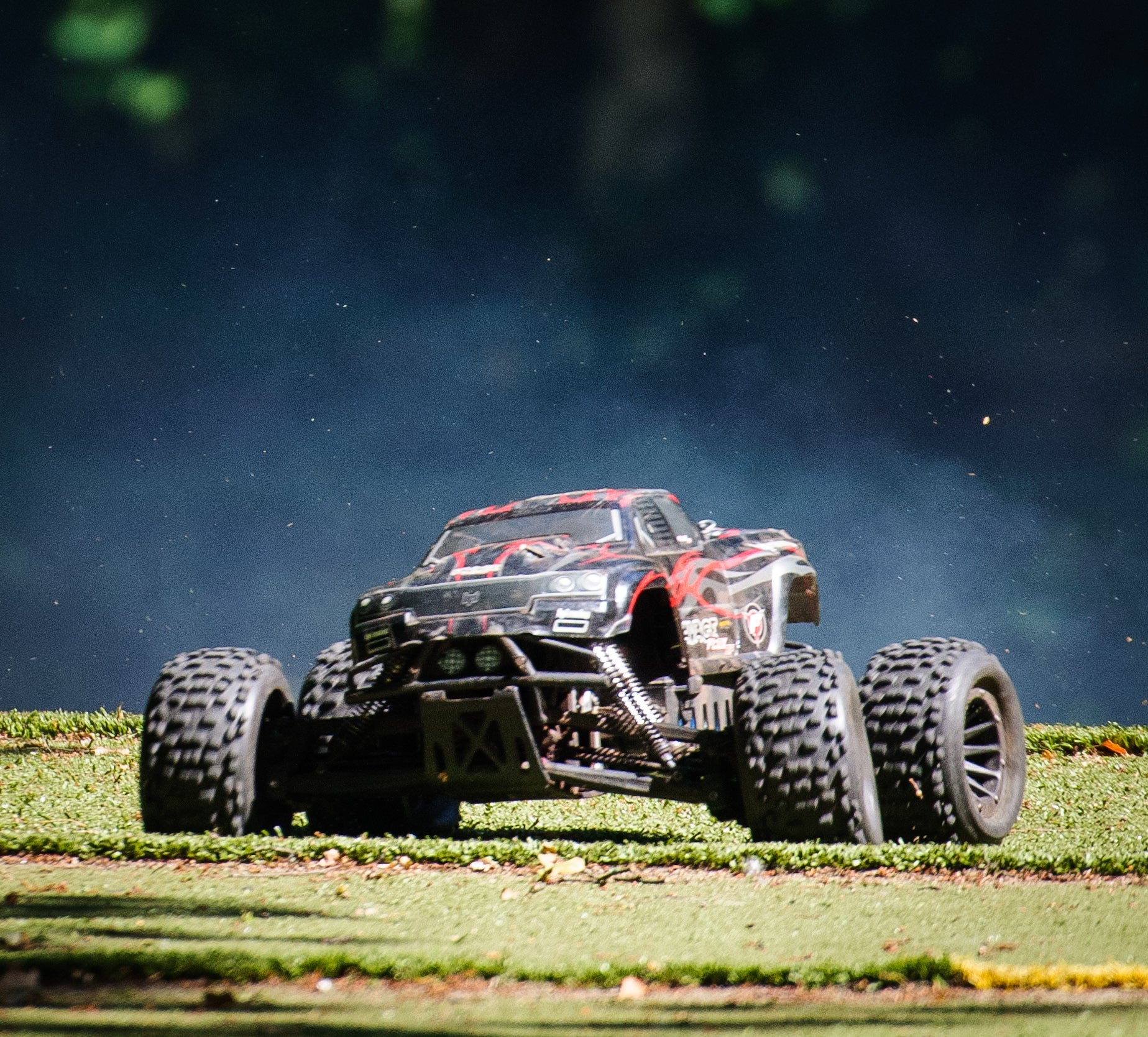
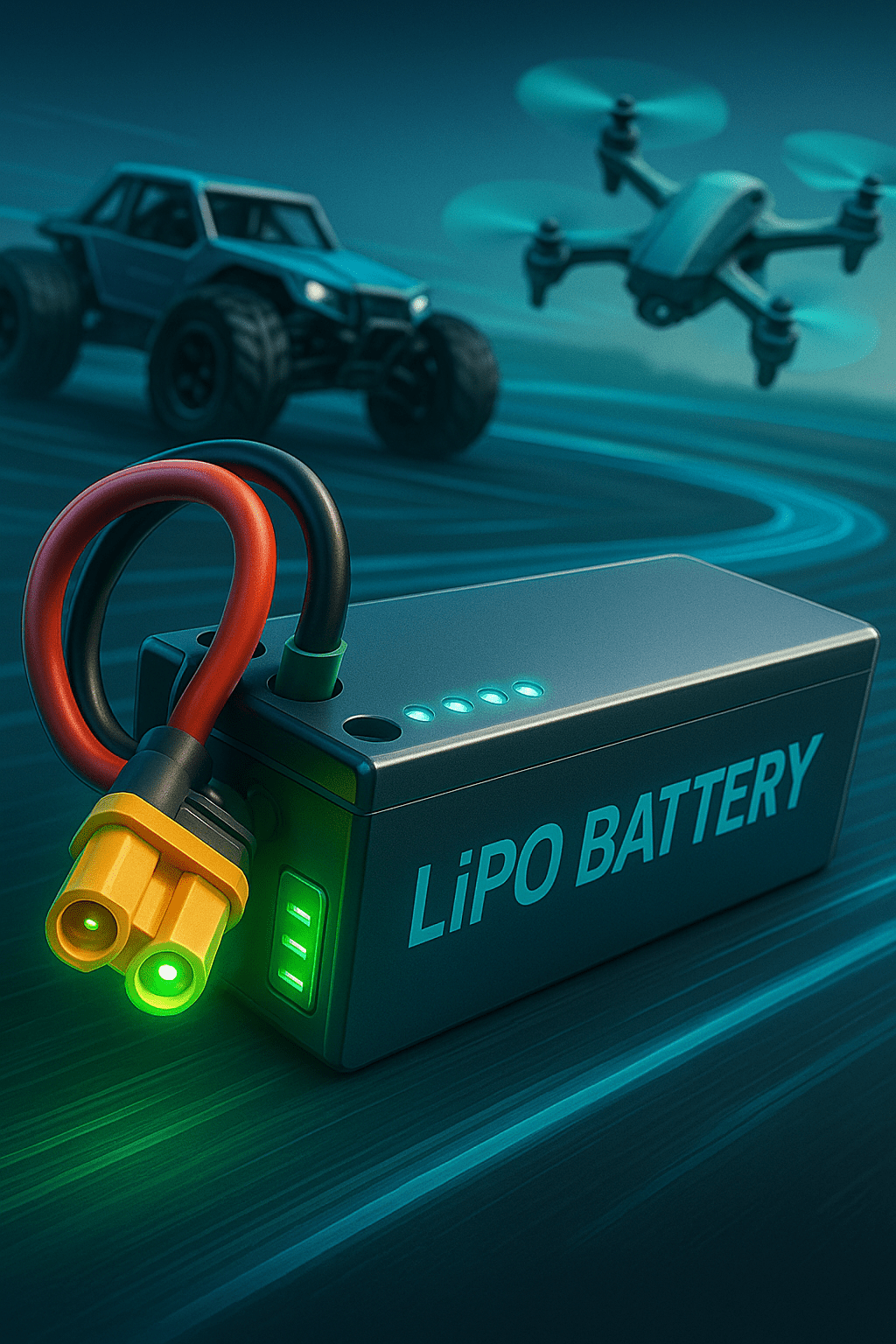
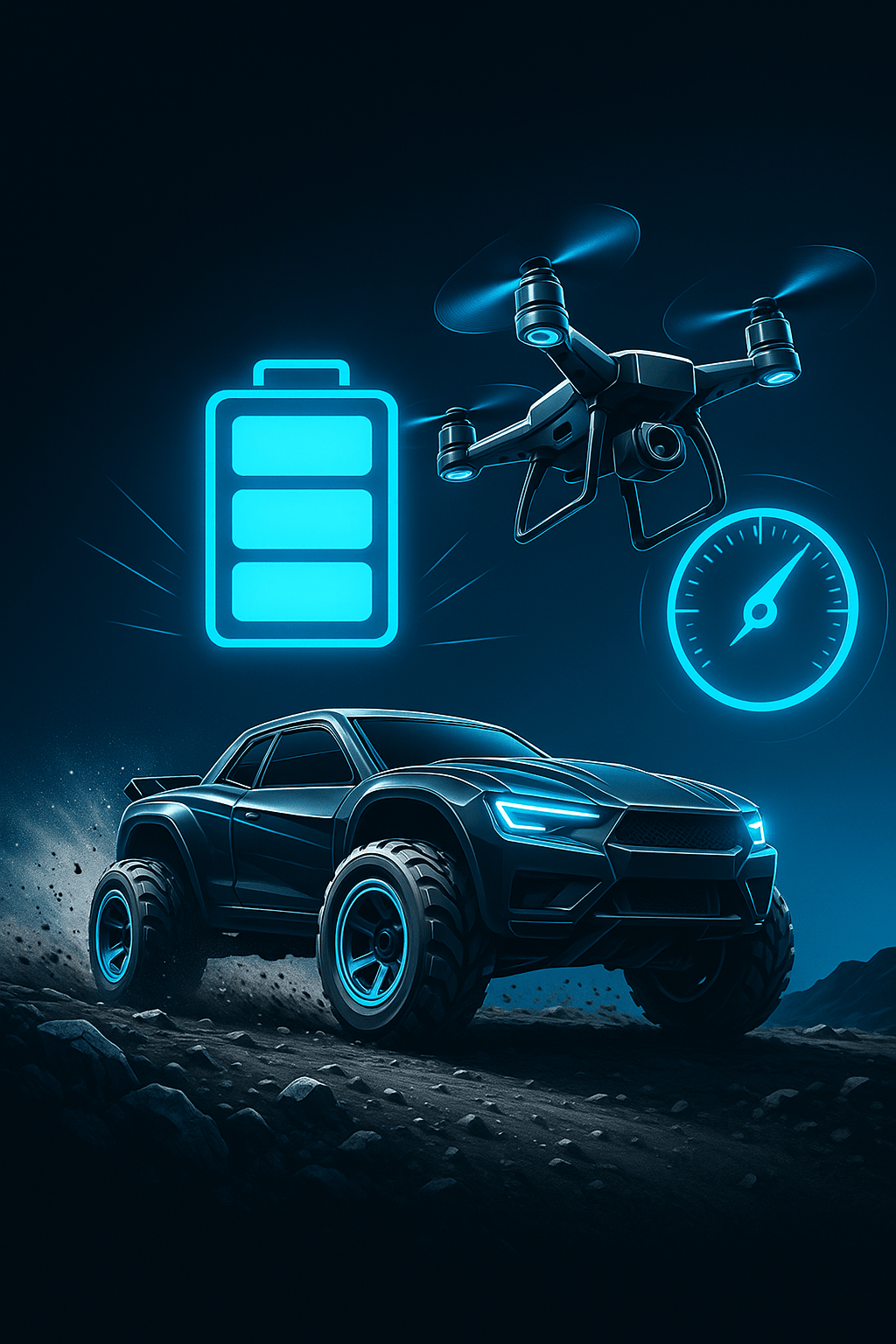
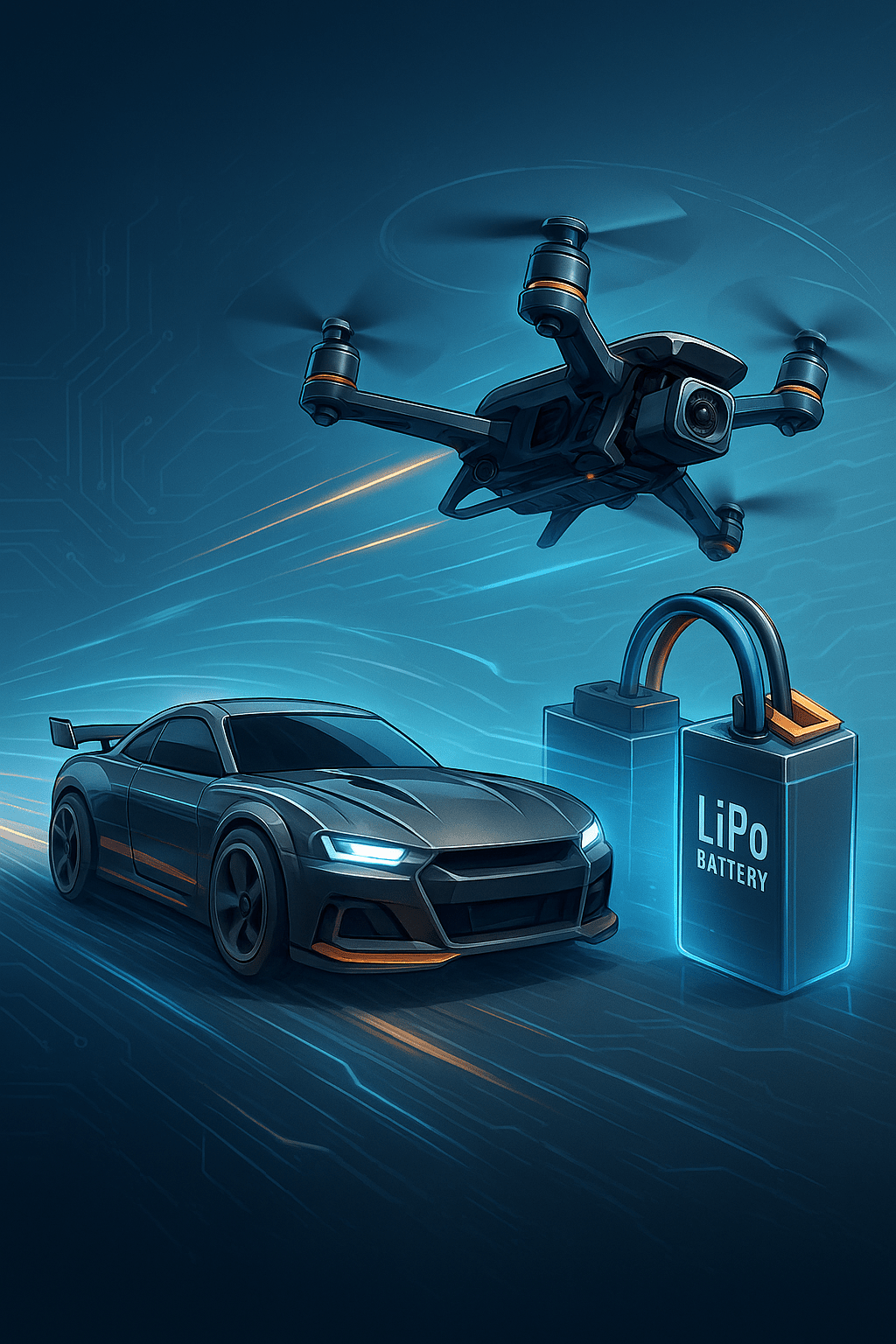
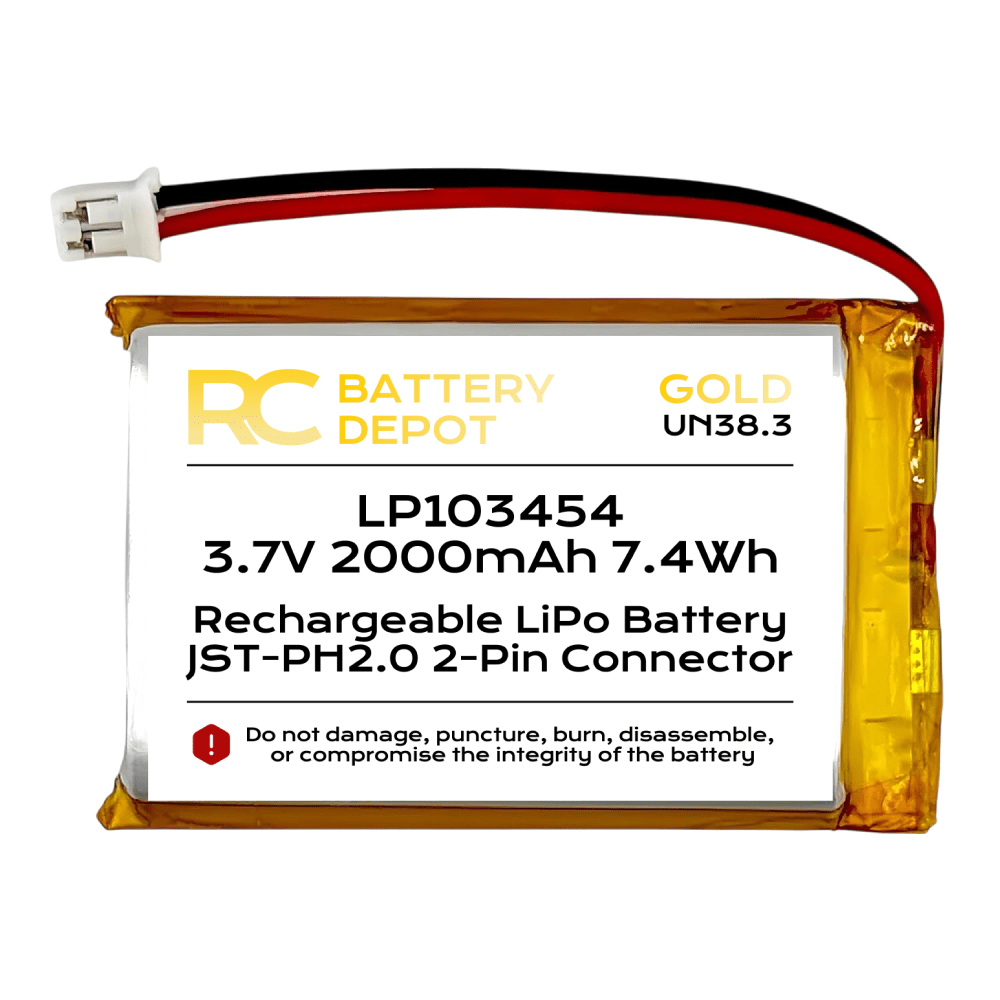
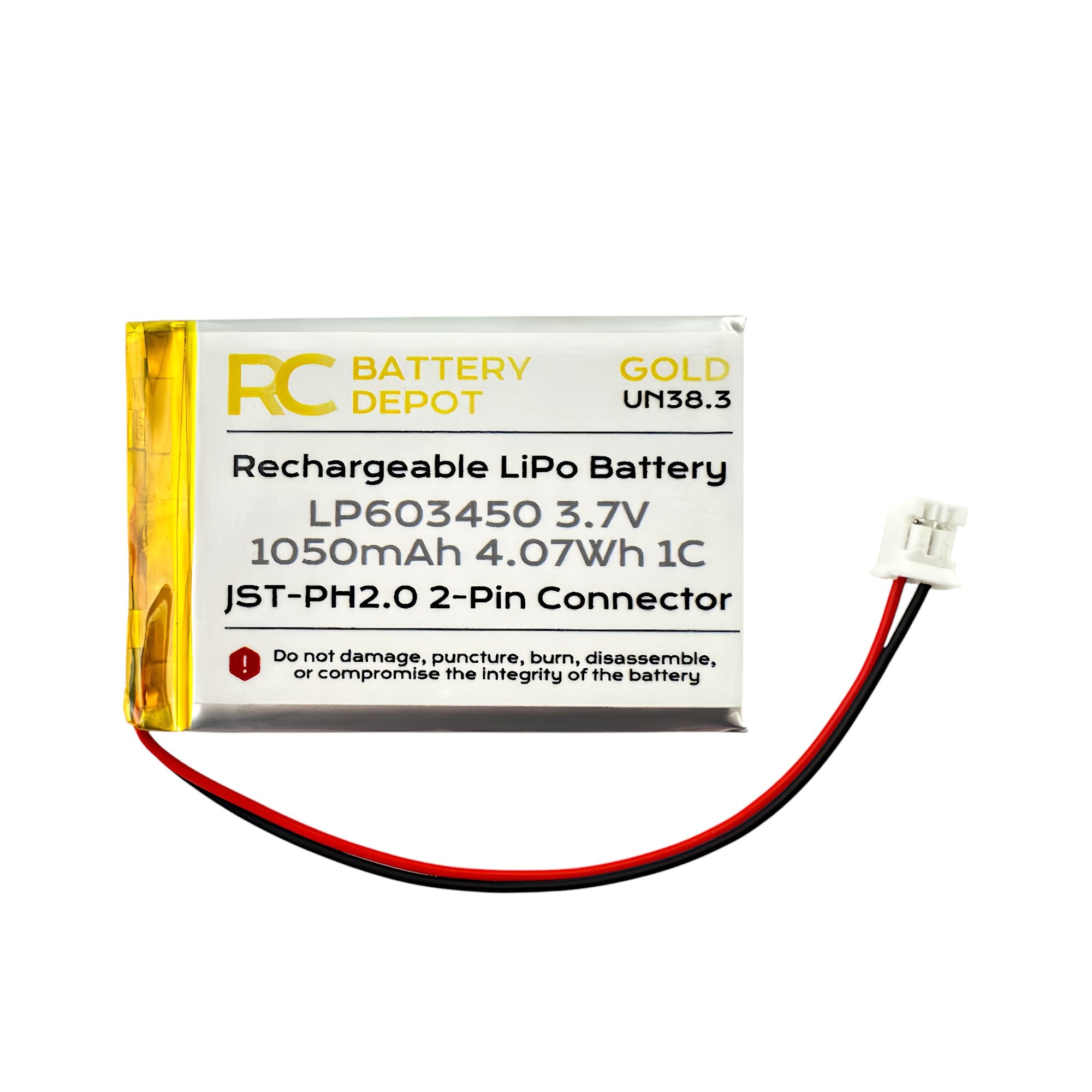
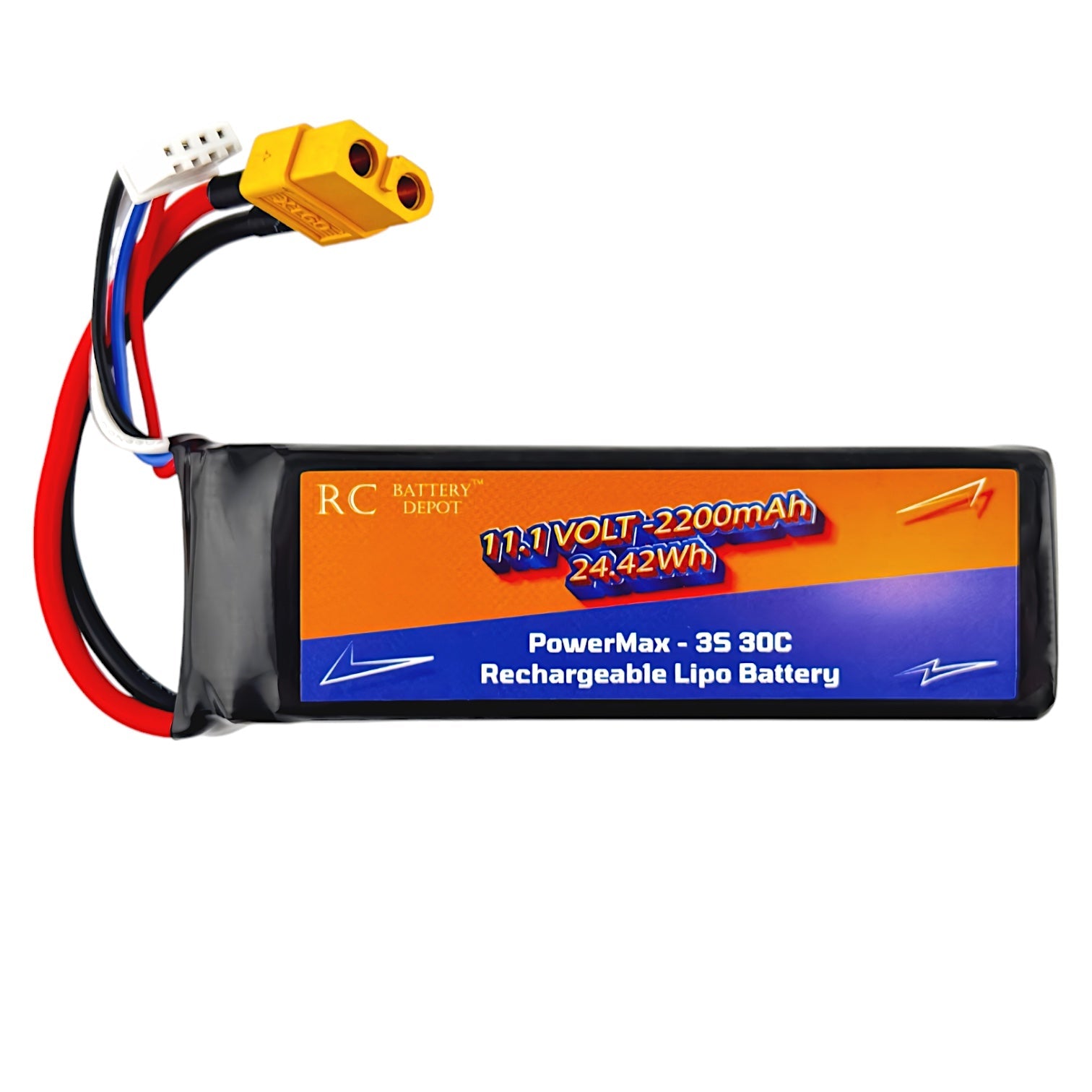
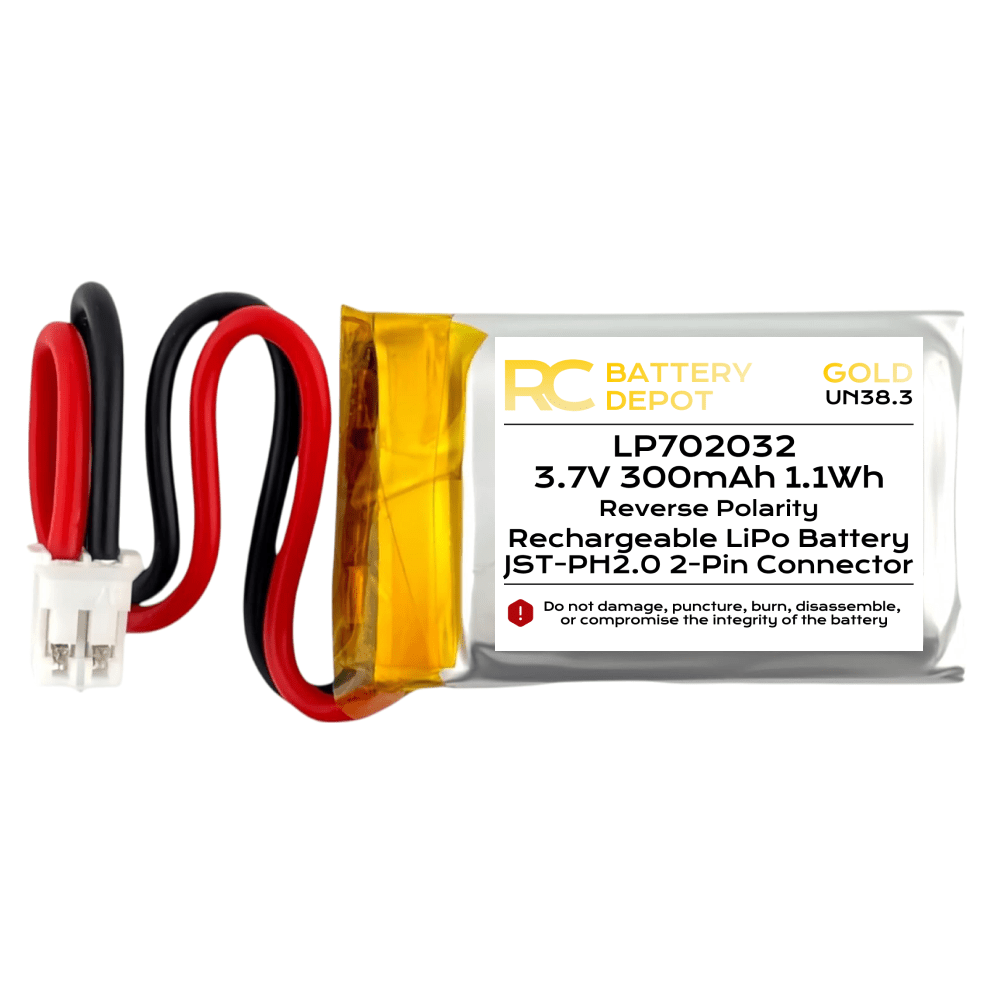
Share:
Revolutionizing Battery Manufacturing: Innovations Powering the Future